By NAVALHA, an Amsterdam-based collective dedicated to curating and protecting queer sounds emerging from Latin America
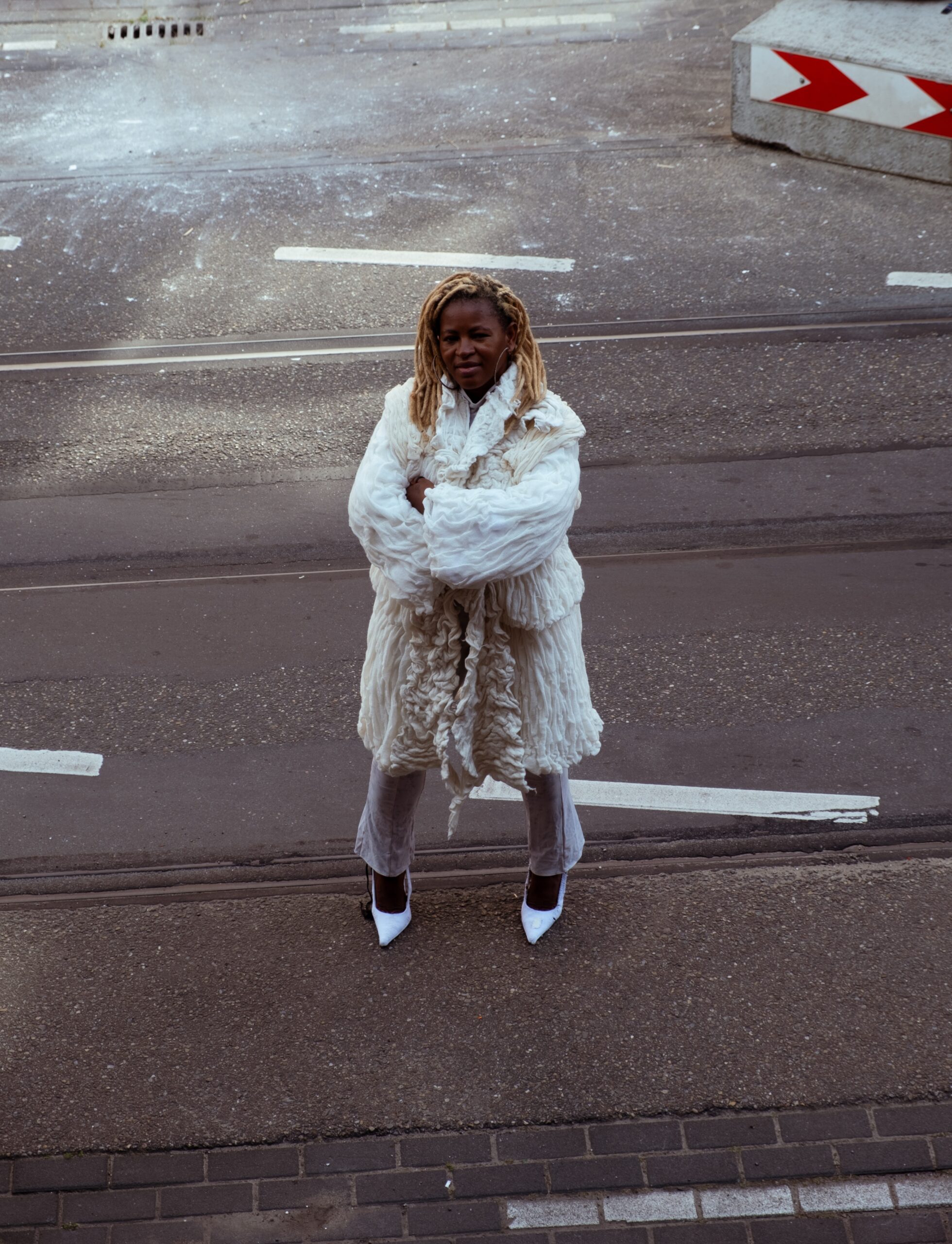
NAVALHA came out of us – two amigas, Alfredo & Barros, both born and raised in Brazil, who met through Amsterdam’s queer nightlife. What started as late-night conversations and shared dance floors grew into an urge to create something of our own. Faced with the lack of political queer Latin American representation in the city’s club scene, we set out to carve a space rooted in care, resistance, and sound. Our first event took place last summer at Club RAUM, with DJ Clementaum and Caio Prince, marking the beginning of what we envision as a platform that serves as a political archival repository – a space for gatherings and nightlife, not only as acts of preservation, but as sites of reflection, resistance, and renewal.
What does it mean to be close – to be in tune, in rhythm, in resistance? During her last visit to Amsterdam, we sat down with Deize Tigrona in a rare moment of exchange that unfolded into a conversation and a photoshoot. Both were directed and produced by our collective as a way to spark new dialogues, open portals, and carve space for future encounters.
Deize is more than a pioneer of 2000s Brazilian funk. She is a queer icon whose voice has carried across generations and geographies, from the favelas of Rio to dance floors around the world. Her music holds joy and fury, memory and movement. This feature is not only a record of that encounter, a way to hold space for her voice, her legacy, and the sounds she continues to shape, but also a full- circle moment for both of us – two queer kids from different small towns in Brazil who grew up listening and dancing to her restless beats.
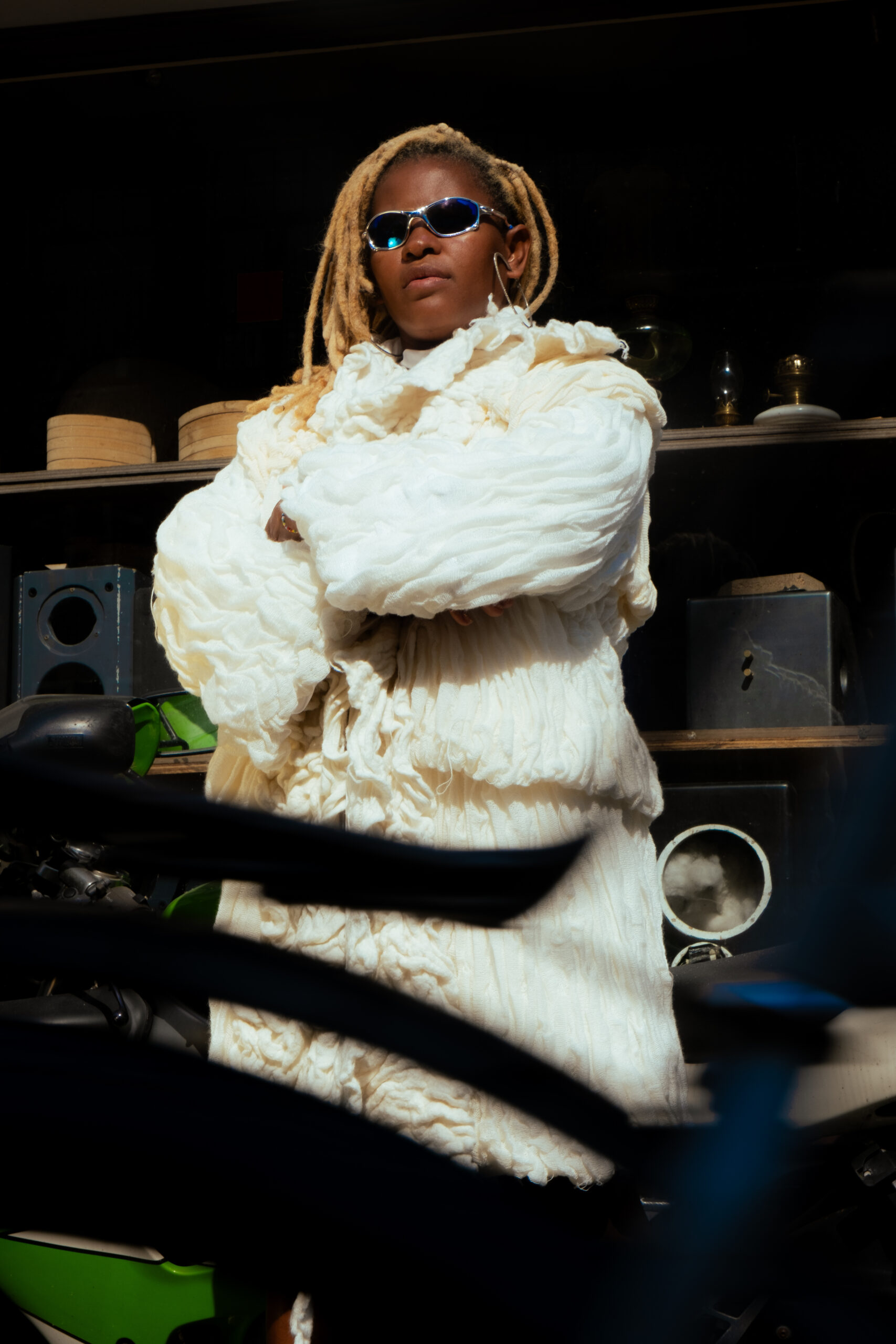
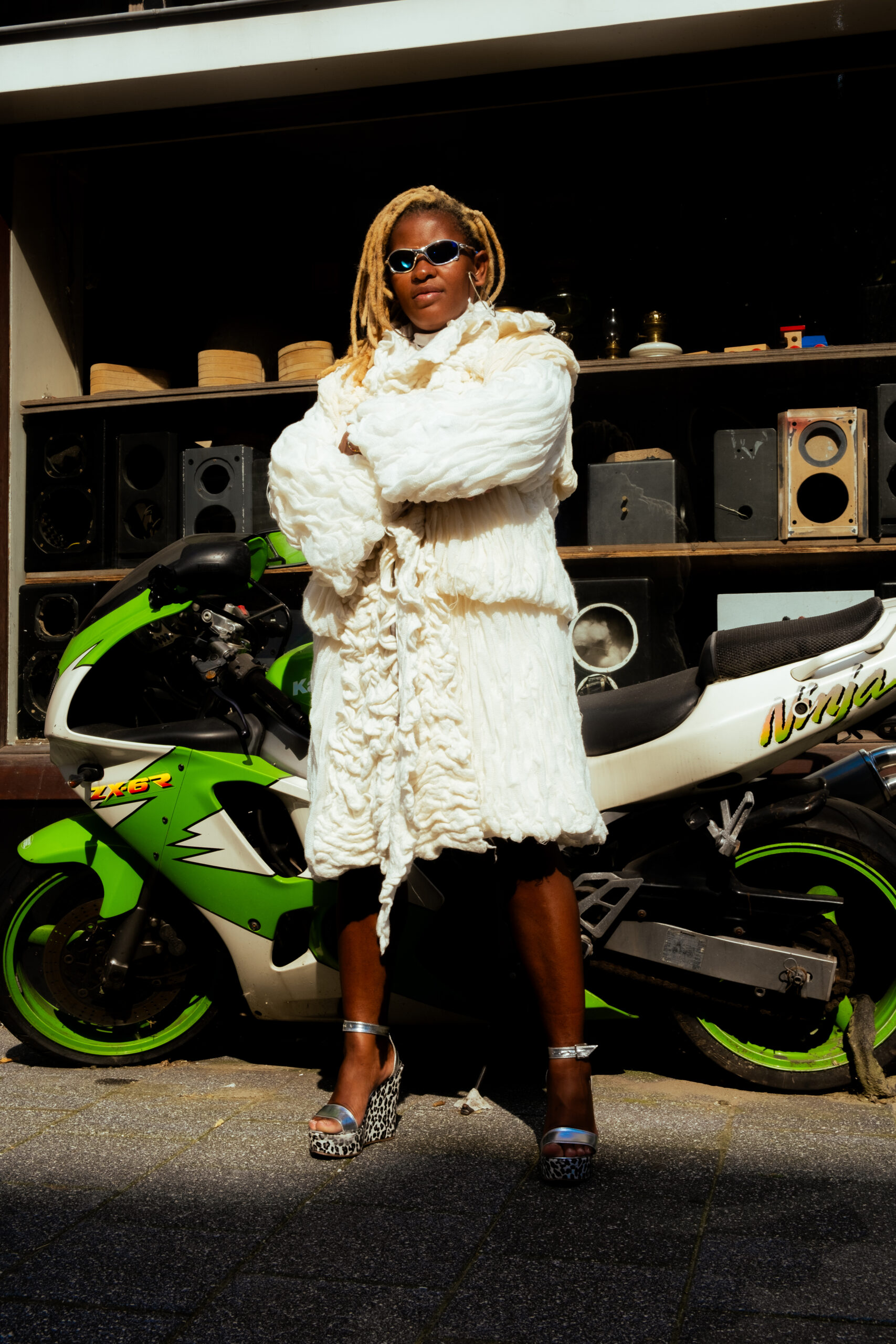
Deize Tigrona. The name resonates with the same intensity as the beats she’s been spreading across the globe. A true Brazilian queen of funk carioca, Deize has not only survived the waves of the genre, but she was a pioneer in breaking norms, bringing the raw sound of Rio’s favelas to European clubs. Now, nearly three decades into her career, Deize is still at the top of her game with her latest album, Não Tem Rolê Tranquilo. In collaboration with Lady Di and K-Edition System, she’s putting the beats of the periferia directly into European sound systems.
“The single Aqui has been really well-received,” she says with a laid-back smile, the kind only someone who has already earned their respect can wear it. “I’m practically at home here. All I need now is a green card!” she jokes, effortlessly bringing the room into her world.
Deize first landed in Europe in 2005, in Paris, and from that moment, she knew she was here to stay. “From the second I set foot here, I wanted to showcase my music. Show them funk, show them the tamborzão beat, my voice,” she recalls. For Deize, funk is more than just music – it’s a form of resistance in a world that continues to marginalize the culture of the favelas. “Funk is street art. It’s from the favela. It resists because it’s ours, because it’s from the streets. It’s not just our sound that echoes, it’s our voices. It’s political.”
Deize speaks with conviction about the embedded connection between funk and social issues in Brazil, especially in a political climate where urban culture and politics are intrinsically linked. “Funk breaks through bubbles,” she states plainly. “It’s about creating power. Those sitting in the chairs of power might not like it, but funk will always be resistance.”
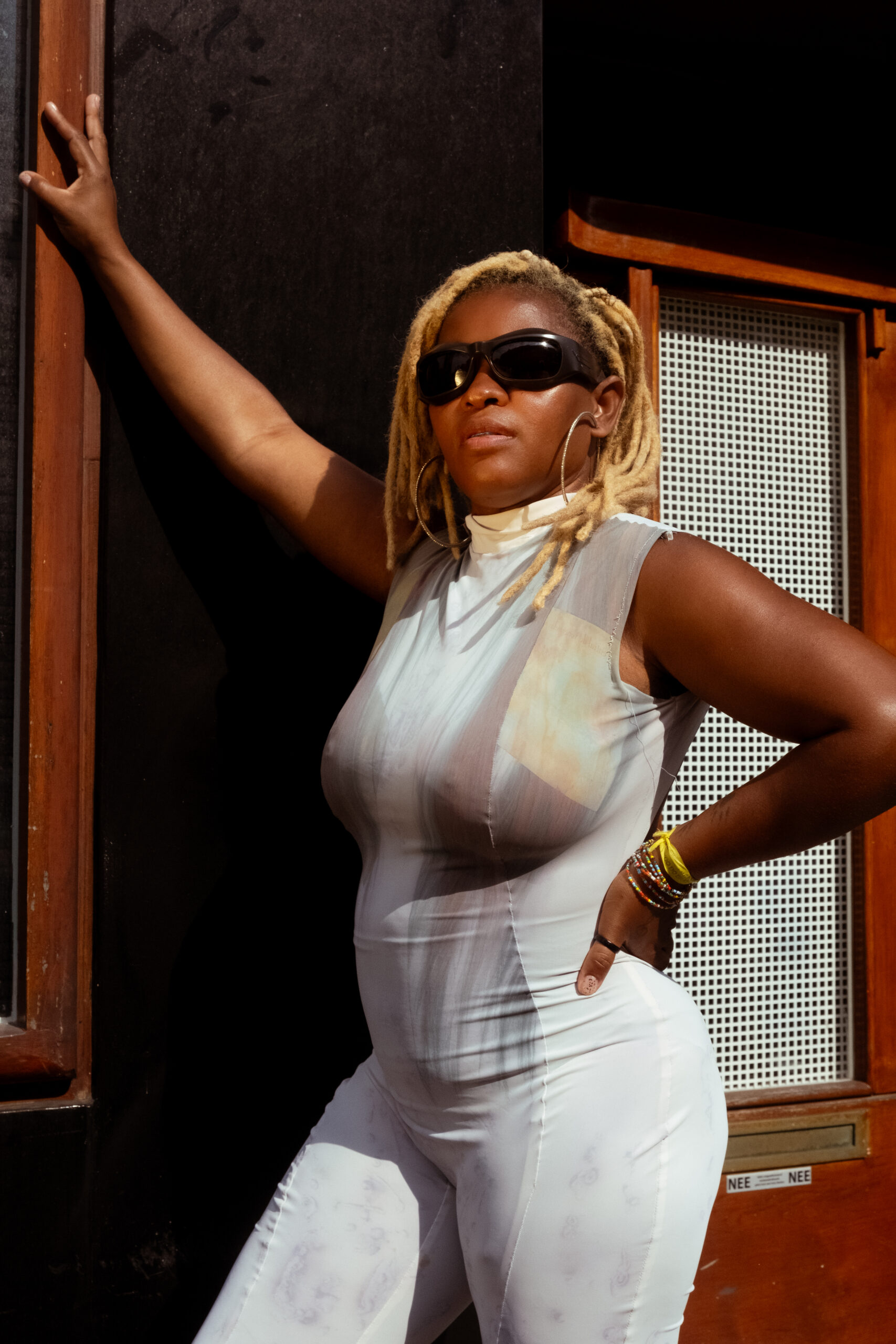
Deize sees funk as more than a genre – it carries an ancestral energy, something that goes beyond the beats that make crowds move. “Funk is like the atabaque (drum) in candomblé, you know? It’s rhythm, it’s dance, it’s joy, it’s the heartbeat, she says. “When funk plays, nobody stands still. It’s something that gets inside you, makes you smile, dance, question things.” That power, according to Deize, is what keeps funk growing, even in the face of repression and prejudice. “You can play funk anywhere in the world, in any club, and the energy is always the same. It’s a force that connects people, no matter where they are.
If funk is resistance, the women who built the genre are its fiercest warriors. As one of the first women to break into the funk scene, Deize knows all too well what it means to fight against sexism in music. “Machismo still exists in funk, and it’s heavy, she admits. “People still sexualize women’s bodies, they don t see the dance as culture or work.“ But that’s never stopped her. “We are here, resisting. It’s tough, it s ugly, but women haven’t stopped, and we won’t stop. The fight is ours, and we ll keep doing funk the way it’s meant to be done.
Beyond the gender struggles, Deize has also seen funk become a platform of expression for the LGBTQIA+ community. She recalls a powerful moment with a trans friend who found strength in her music to come out. “Funk gives that empowerment, that courage to come out, to be who you are. It’s an art that embraces, that transforms.“ For her, funk is a space where the barriers of gender and sexuality are disrupted, where all voices can take up space and be heard. “Funk is about inclusion. It’s resistance. It’s freedom. And that’s what keeps it relevant.”
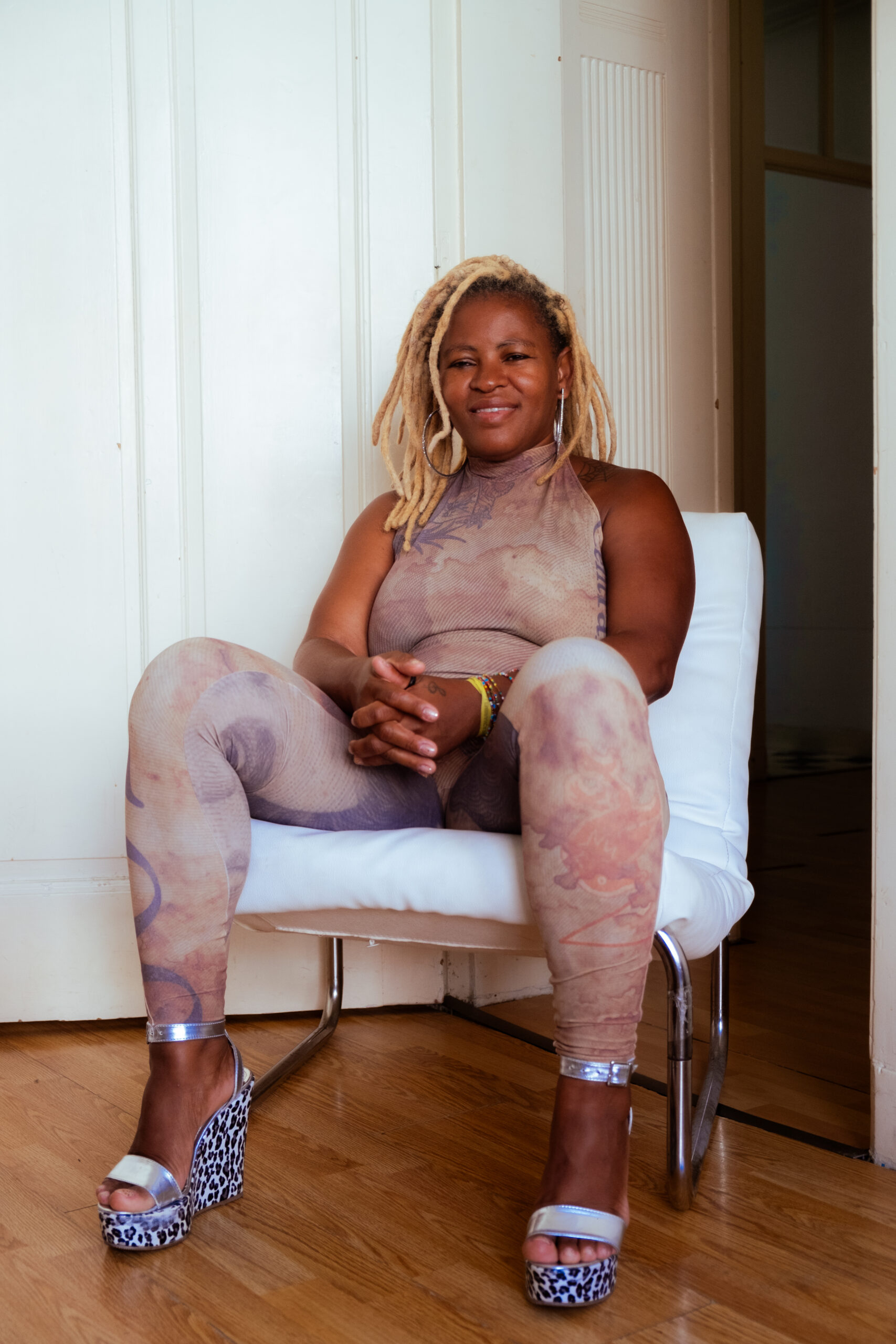
Racism is another issue that Deize tackles head-on. Coming from Cidade de Deus, one of Rio’s most known and largest favelas in Brazil, she doesn’t sugarcoat her journey. “Funk is a Black culture. It comes from the favela, and a lot of people still don’t see it as art,” she says. “Racism in Brazil is structural. Funk only gets attention when there’s capital involved, but when the favela tries to do something on its own, it’s a different story.” Deize reflects on how racism impacts her life and her art, but also on how funk continues to resist. “The favela can’t stop. We keep moving, even with all of this. It’s a daily fight.”
Even with a career that could easily allow her to rest on her laurels, Deize shows no signs of slowing down. She’s got new singles ready to drop, and projects like the Funk exhibition at Rio’s Museum of Modern Art, which has been extended due to its popularity. “I’m not planning on releasing another album anytime soon. I prefer to focus on singles and take a breather. Não Tem Rolê Tranquilo was hard work, it was independent, and now I need a break.”
But “break” is relative. Deize keeps herself busy working on other projects. “I want to create more art, show that funk can be visual art too, that it can be in galleries, in museums. People still don’t get what funk can be, and I’m here to show them.” Deize Tigrona embodies the raw energy of the periphery, a force that stands at the intersection of culture and resistance. More than just an artist, Deize is a living testament to resilience, constantly pushing boundaries and rewriting the rules. Her journey isn’t just about music – it’s about staying true to herself and her roots, proving that the revolution is still very much in motion.
Photography by DIORA
Styling by Asira Zaí
Production assistance by Agrî
Direction, production and words by NAVALHA
Notifications